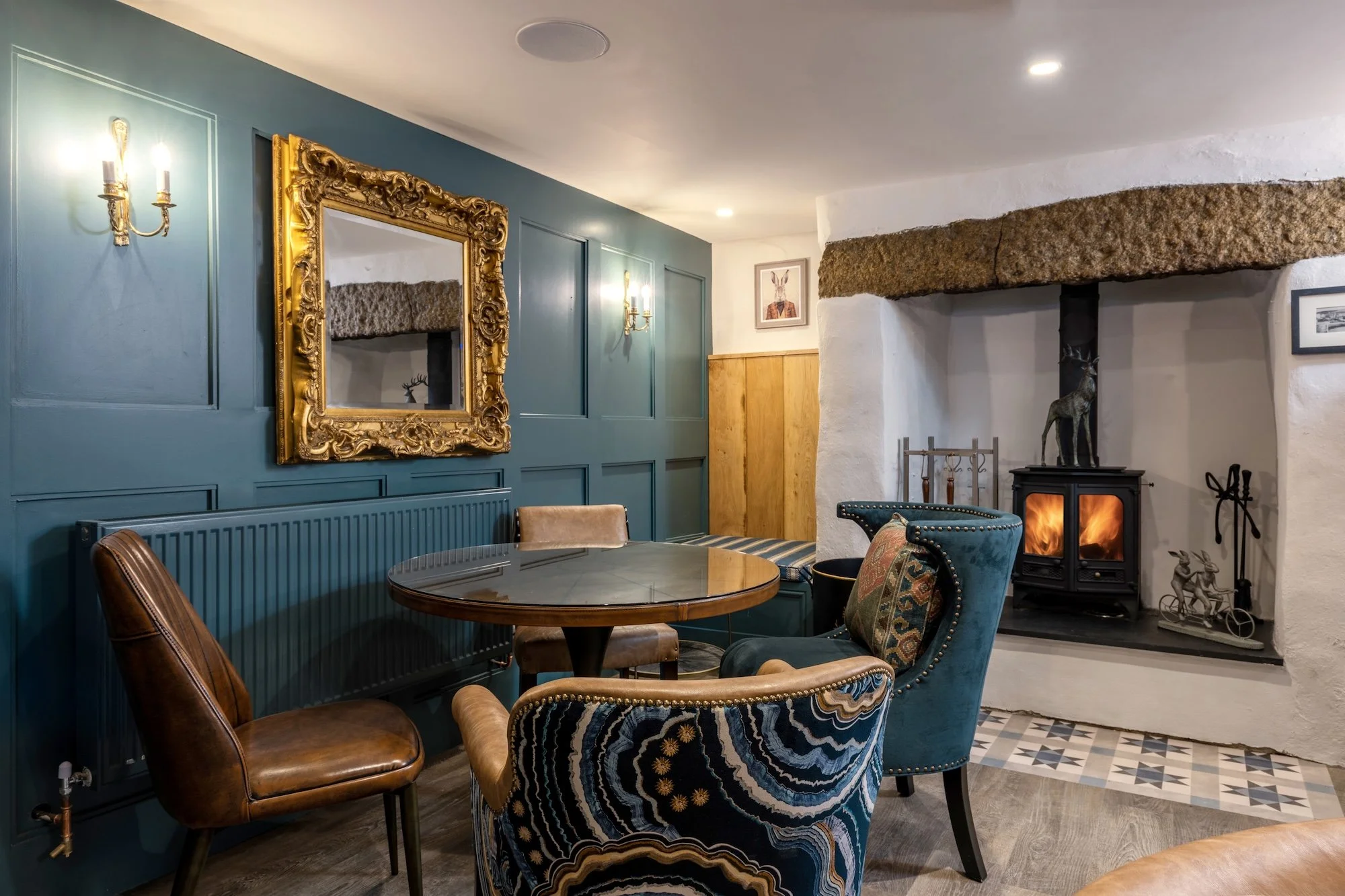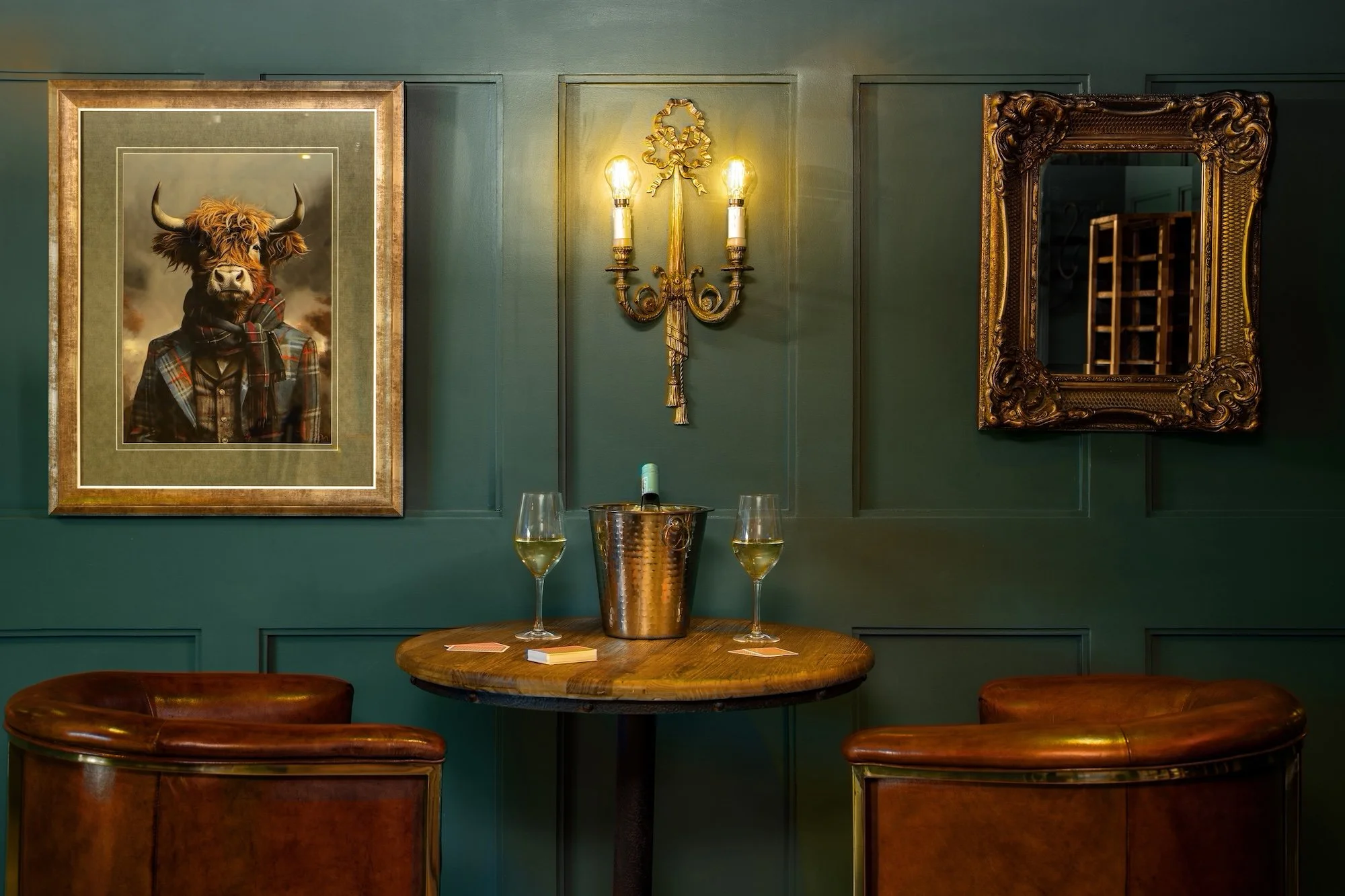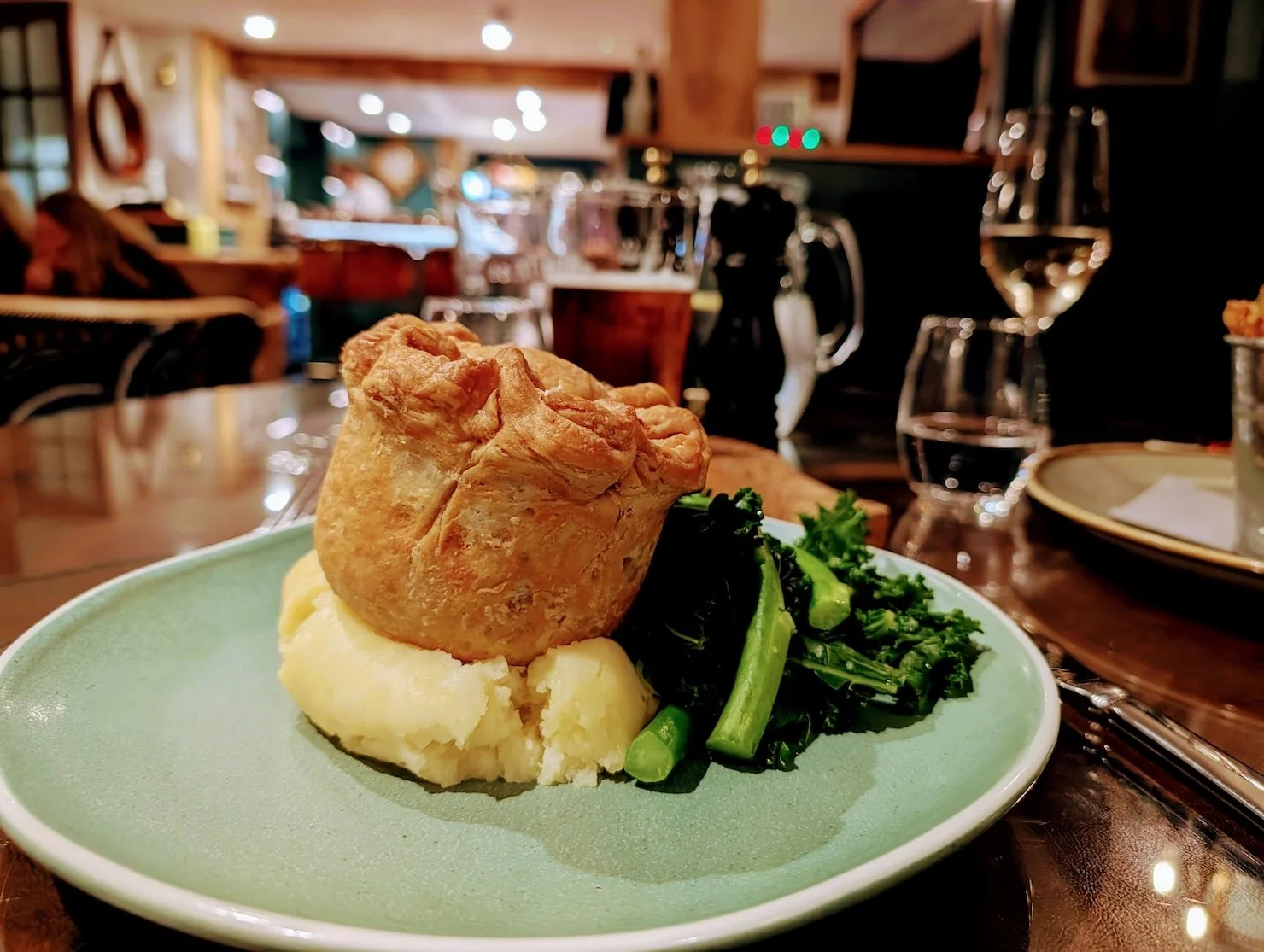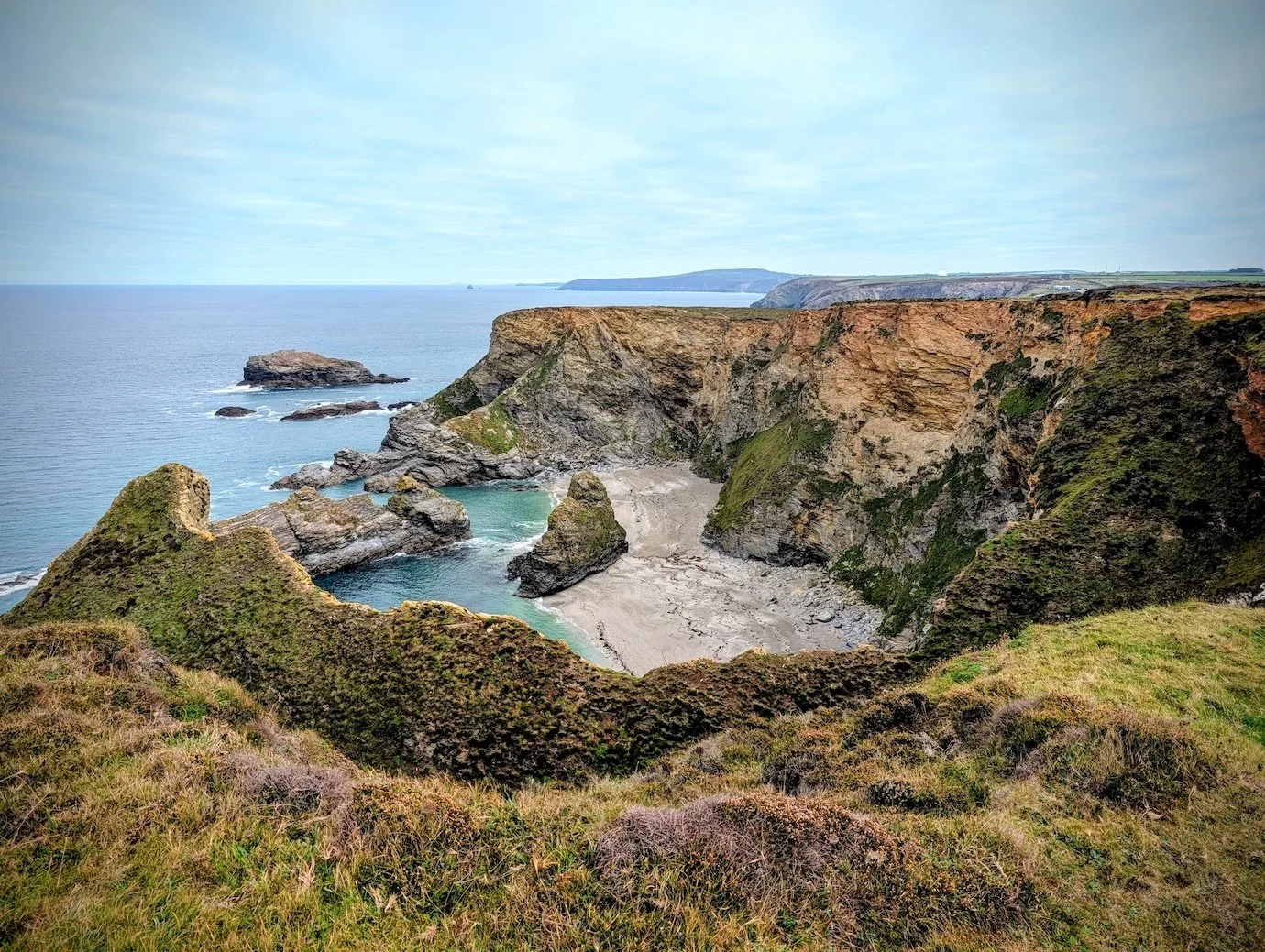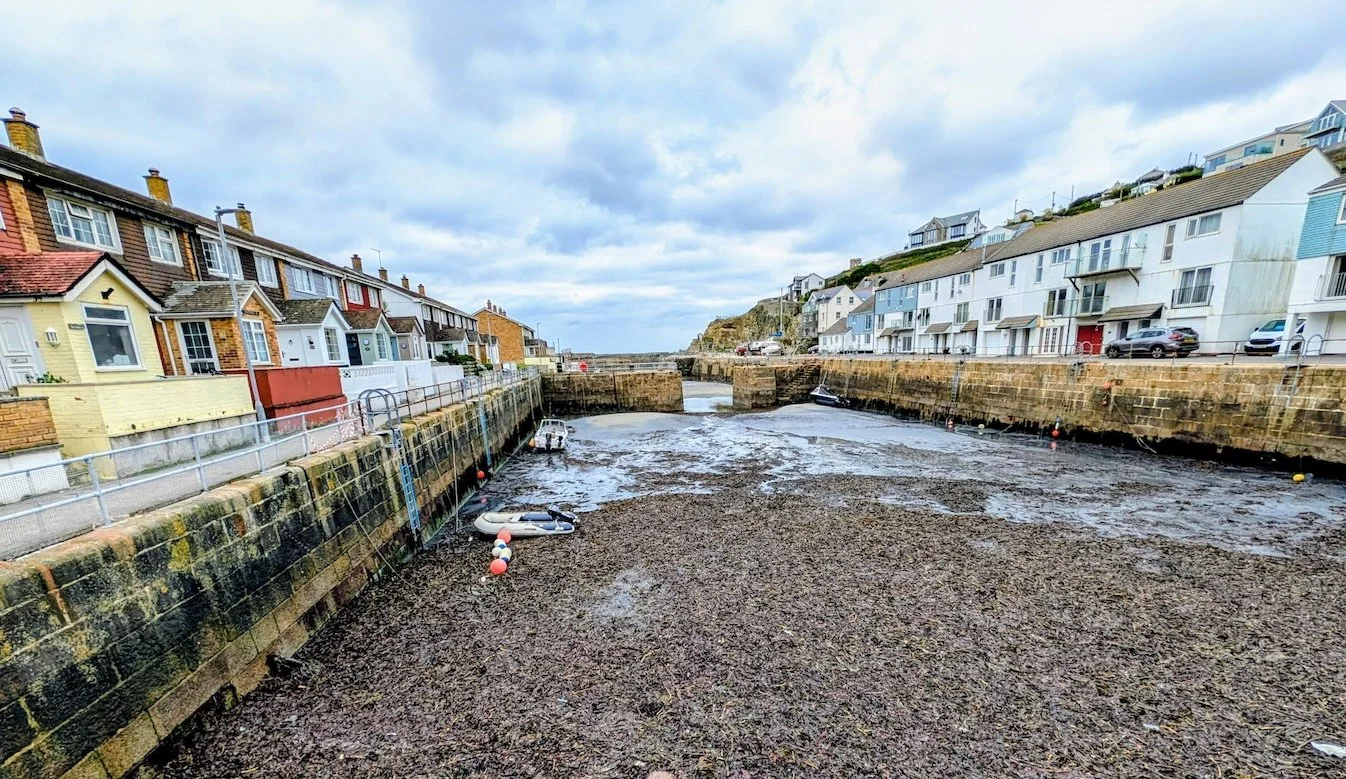Discovering Portreath: Cornwall’s Least Touristy Harbour and the Revived Basset Arms
Discovering One of Cornwall’s Least Touristy Harbours
If you had to make a shortlist of the Westcountry’s finest attributes, then the peninsula’s harbour towns and villages would be near the top. You only have to visit our seaside venues at any time of the year nowadays to know that is the case. Some of the prettiest havens are nowadays filled with visitors summer and winter.
Which, to many of us, immediately begs the question… Which are the least visited most untouristy communities by the sea?
There aren’t many left, specially down in Cornwall. But I do know of one harbour that has not been turned into a maritime theme-park for the visitors - and I was lucky enough to spend a couple of nights in its wonderful environs recently.
Portreath beach and harbour entrance
Portreath: A Rare Untouristy Haven in Cornwall
When it comes to popular Cornish seaside destinations, Portreath has never been top of anyone’s wishlist. Why not? Well, to put it bluntly, this was very much a working harbour. Coal in, copper and tin out. As such, it was not treated with much respect by the people who’ve run the place down the centuries.
The mining industry required Welsh coal to power its pumps and whatever, and this was the ideal port through which the black stuff could be imported.
Once the coal-yards and ore had gone, the post-industrialised state of the place lent itself to a cheap land-grab by the local authorities, who bunged up inexpensive housing here as an overflow option for nearby Camborne and Redruth.
It is the only harbour I know of, in either Cornwall or Devon, that is almost entirely surrounded by a low-cost housing estate. But, in a funny way, this less-than-scenic mix of concrete and cheap-build has helped save the place from the ravishes of tourism. To such an extent that I’d now say that Portreath is one of my favourite seaside towns in Cornwall.
It is the only port ‘down west’ that has been subjected to almost zero commercialisation. It has a truly fabulous beach. And it has a soul.
Staying in Portreath: The Basset Arms Reborn
Which brings me to the hostelry where my wife and I had the good fortune to stay recently. When I first heard that the old Basset Arms, situated just a stone’s throw from the beach at Portreath, had been taken over by the folk from the famous Carbis Bay Estate, I thought perhaps this was the first sign the old coal-harbour was about to go through the process of becoming gentrified. After all, Carbis Bay is what you’d call “high-end”. Prime ministers and American presidents get to stay in the likes of Carbis Bay.
Basset Arms interior
And, indeed, the team has brought the brand’s well-known levels of quality and service to Portreath. But… And it is a big but… The small and modest Basset Arms has not been converted into the kind of watering-hole where only the rich need apply.
Instead, this historic, end-of-terrace, hostelry has been upgraded into something which could be best described as a very good community pub. It welcomes locals who come in to play darts and pool. It caters for local folk who fancy a meal out at a price that will not break the bank. And it greets Coast Path walkers to stay in its comfortable rooms, located above the busy bar.
A Community Pub with Real Cornish Warmth
I loved our visit to the Basset Arms. It suited this old journalist to a tee. The staff were wonderfully friendly, nothing was too much trouble. One night we were there, they were preparing their weekly ‘pie, pint and pudding night’, and of course I was more than happy to consume whatever was on offer. It turned out to be the best beef and ale pie I have enjoyed in a long time (superb pastry) and the apple pie hit the same high mark. Quality pie-and-mash, apple-pie and a pint of Tribute all for £21? That’ll do nicely, thank you. I have seen similar elsewhere costing twice as much.
Martin’s beef and ale pie
The lovely duty-manager, Jody, told me that the majority of diners in the pub that night (it was just about full) were locals, many of whom had come the short distance down from Camborne or Redruth. There was a certainly a jolly buzz about the place.
coastal scenery near Portreath
Walking the Coast Path from Portreath
The next morning we went for a long and wonderful walk along the coast path west of Portreath which, much to my delight, allowed me to discover a section of the long distance trail I’d never visited before.
Why Carbis Bay Invested in Portreath
So… The Basset Arms, now refurnished as a kind of annex to the much-celebrated Carbis Bay Estate… What’s all that about? To find the answer I talked to co-owner Kelly Barker, who wasn’t difficult to find as she was waitressing on the pie-and-pint night. She was able to tell me how it was that one of the top hospitality outfits in the South West had decided to invest in the old coal-harbour town.
For a start, Kelly is a fan of the concept of community. It was she who first came across the main seaside cafe at Portreath and decided with her friend Stephen Baker, owner of the Carbis Bay Estate, to purchase the lease and run it as a community-led diner. Which she has been doing successfully for the past couple of years. When the lease of the pub, just 100 metres away from the Pod Cafe, came up for grabs earlier this year, it seemed like an obvious extension.
Puddings at the Basset Arms
“We took over the lease at the end of April and opened the doors on the 29th of July. The whole place needed a complete refurbishment. When we took over, we didn’t think it was going to be quite as much work, but there really wasn’t a halfway house - we had to do it all,” Kelly told me.
“And do it sympathetically. We wanted to keep some of the character of what was here before. Having said that, everything needed doing, from the plumbing to the electrics. Every single wall upstairs was taken down. At one point, there were holes through the floor when I was showing potential future staff around!”
I observed that the good thing was they’d kept the place a proper pub.
“Yes, that was always our intention,” she replied. “There were so many rumours: ‘It's going to be flats,’ ‘It's going to be a posh dining restaurant,’ but we just tried to reiterate, ‘No, it’s going to still be a pub.’
Keeping Portreath Local
“We want it to be a community pub, just like the cafe. It’s community-led. We want people to come in, celebrate birthdays, special occasions, get-togethers, and make memories. We wanted it to be very much food led, though, so we really wanted that to be the driving force of the business.
“Stephen decided it was a good thing to branch out because that’s what makes Carbis Bay so wonderful - a businesses that branches out with multiple income streams which all support one another. You’ve got a network of staff who can move around the different venues. That’s what we’ve tried to do here in Portreath - we have staff who work in both the pub and the Pod Cafe.”
The Basset Arms relationship with the venues at Carbis Bay means that coast path walkers can take advantage of special deals which allow them to stay a night at Portreath, then hike on to the Gannet Arms situated above Carbis Bay.
Indeed, we enjoyed a superb lunch at the Gannet Inn while on a tour of the area.
Delicious food at the Gannet Inn, Carbis Bay
A Pub with Heart and Community Spirit
I was taken by Kelly’s affection for Portreath. “It has a soul,” she told me. “It has plenty of characters who come in and have a chat. We have all these lovely people who come in on a regular basis - so it’s very much a community pub. If they have a TR postcode or a PL postcode they get 10% discount as well.
“So we’re trying to support locals. At the same time we must keep up the quality. We’re able to keep up a consistency, thanks to the chefs and the calibre that comes from Carbis Bay. So there’s a real focus on using the right supplier - being as local as we can and using as much seasonal produce as possible. What we’re doing here is hearty pub food.”
Hearty is the word. Warm and hearty would be even better. So if you’re in Cornwall take a trip down the old mining valley from Redruth and enjoy the superb sandy beach, before having lunch or supper in the Basset Arms - and maybe even stay a night or two in the newly revamped rooms. You stand a good chance of seeing Cornwall at its best.
To find out more visit https://bassetarms.co.uk/
Portreath Rich In History
Colliers were calling at Portreath until just 50 years ago, but if you’d visited 70 or 80 years before that, you’d have found the three linear basins packed with shipping. There are old photos of the dock in its heyday depicting mountains of coal strewn across the yards alongside piles of copper-ore from the neighbouring mines.
Portreath used to be called Bassett’s Cove after the family who, for nine centuries, held title to the neighbouring manor at Trehidy. They helped develop the extensive mineral workings in this corner of Cornwall.
Until 1809 Bassett's Cove was just a fishing village, but exports of copper were beginning to change the area’s fortunes. It was in that year that a tramway - one of the earliest railways in Britain, and the first in Cornwall - was opened linking Portreath to the St Day mine some five miles inland.
For the next 100 years Portreath was one of Cornwall’s busiest harbours with the docks groaning under the weight of Cusgarne and Poldice copper, as well as Redruth tin, and the huge amounts of Welsh coal required to power the mines.
The wild coastline must have given skippers nightmares. Portreath was not an easy port to enter, or leave. Just north of the harbour is Horse Rock and less than a mile offshore is the wedge-shaped Gull Rock - between these two the fleet would sometimes be forced to anchor for days waiting for the swell to die down.
Even in light airs the Atlantic could cause problems - in the early 1800’s William Jenkin, a merchant from Redruth, counted 28 boats riding out beyond the breakers waiting to enter port. There would often be just as many ships inside the harbour waiting to leave.
During the previous century this could be a very grim anchorage indeed. The tinners of the Camborne area were an infamous lot keen to supplement their meagre wages with a bit of wrecking. On Christmas Eve 1751 they found a Spanish ship laden with logwood, indigo, silver coin and bullion lying wrecked in a cove called Ralph's Cupboard. Needless to say, they had the lot away and tidied up by demolishing the ship until there was nothing left.





